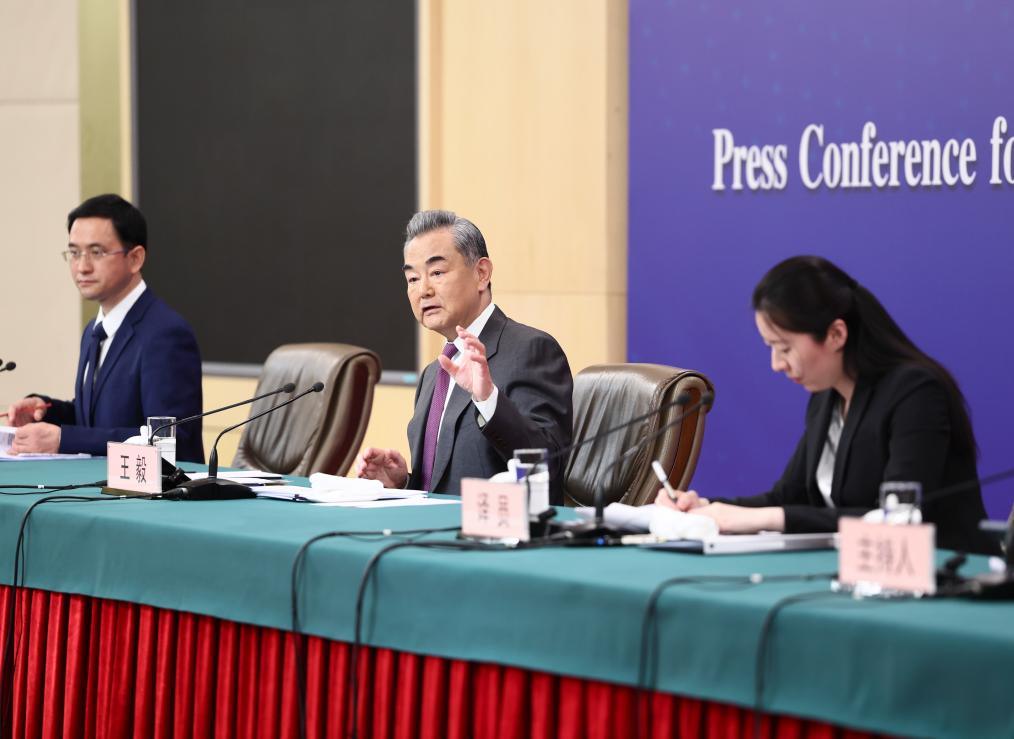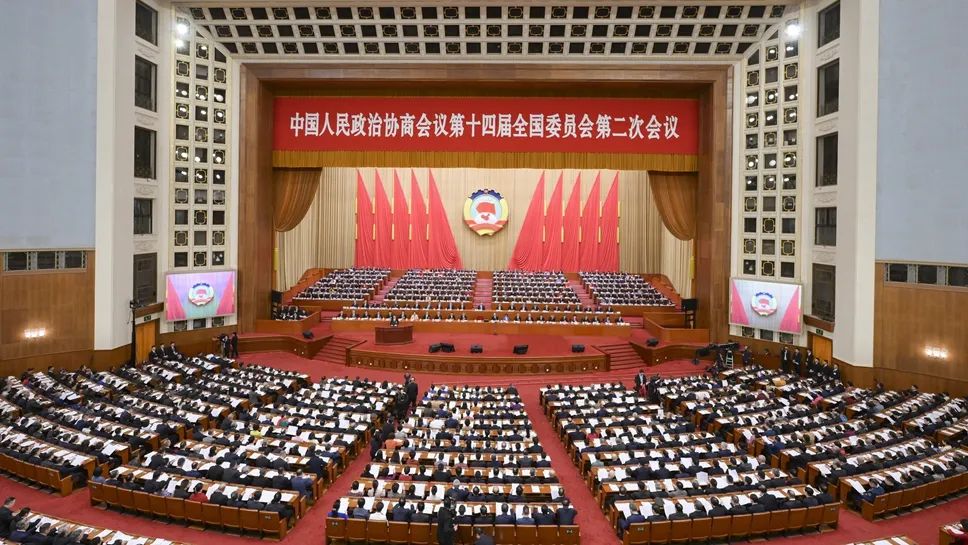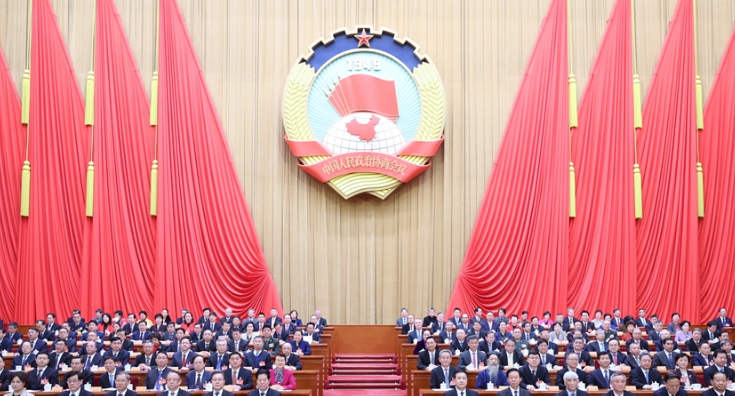CATTI-题库-真题-模拟-课程-直播
 纽约时报
纽约时报
 2012-10-23
2012-10-23
 纽约时报
纽约时报
 383次
383次

OVER a long campaign, it’s become maddeningly difficult to tease out concrete differences in how Barack Obama and Mitt Romney would deal with an angry, unmanageable world that at once craves and resents American intervention.
经过了漫长的选战,想要梳理出贝拉克·奥巴马和米特·罗姆尼(Mitt Romney)在外交政策方面有什么具体的区别,真是极端困难。这是一个愤怒、难以管理的世界,各国对美国的干预,既渴望,又憎恨。
Iran? Mr. Romney promises toughness, decries the administration’s naïveté that it could talk with the mullahs and declares, when pressed, that he would bring about “crippling sanctions.” An amused Mr. Obama says he’s already checked that one off, leaving unsaid the cybersabotage that was directed toward Iran’s nuclear program out of the Situation Room. Afghanistan? It’s a race for the exits, with Mr. Obama at a fast trot and Mr. Romney at a brisk walk, now that he has discarded his primary-season vow that we stay around to kill the Taliban. Mr. Obama is helping funnel light arms to the Syrian rebels; Mr. Romney would send heavy arms, and neither can explain how they would separate secular rebels from jihadists.
伊朗问题?罗姆尼发誓要采取强硬立场,他公开谴责现任政府以为可以和穆斯林人谈判的想法太幼稚。再三逼问之下,他宣布,自己会对伊朗实施“严酷的制裁”。奥巴马对此感到好笑,说,他已经这样做了,却没有提及白宫局势研究室针对伊朗核项目发动的网络破坏活动。阿富汗问题呢?两人都说要尽快撤出。奥巴马一路小跑,罗姆尼也放弃了初选时候说要继续留在阿富汗打击塔利班的立场。奥巴马从旁协助把轻型武器偷运给叙利亚反对派;而罗姆尼说要提供重型武器。他们都不能解释,如何区分世俗的反对派和圣战分子。

Mazen Mahdi/European Pressphoto Agency
周日抗议者在巴林岛。在那里什叶派教徒抗议活动遭到镇压。
These fine gradations — exaggerated for effect two weeks before Election Day — will presumably be on display Monday night at the final presidential debate. But with luck, viewers will get a glimpse of the real, gut-level difference in how these two men perceive the future of American power.
距离大选还有两周,这些细微差别为了竞选效果而被夸大。而在周一晚间的最后一场辩论上,这些差别可能会表现无遗。但如果幸运的话,观众们也许将会得以一窥两位候选人关于未来美国实力的真实、发自肺腑的不同见解。
In Mr. Romney’s telling, America can — and must — restore itself to the glory days when it had unquestioned pre-eminence in the world. It was a brief, shining moment — that decade bracketed by the collapse of the Soviet Union and the destruction of the World Trade Center, when the United States was what the French called, with some derision, a “hyperpower.” A longing for that era lurks in Mr. Romney’s critique of what has gone wrong in the Obama years, which he describes as a messy age of jihadist revivals, new nuclear worries and a looming threat from Beijing, and an era in which, he wrote recently, “our country seems to be at the mercy of events rather than shaping them.”
按照罗姆尼的阐述,美国能够、也必须复兴往日的荣光、重塑在全球无可质疑的主导地位。那是一个短暂而光辉的年代,历时10年,始自苏联垮台,终于世贸中心的倒塌 。法国人以嘲讽的口吻,称美国是那个时期的“超级大国”。 罗姆尼在批判奥巴马执政期间出现的错误时,言语之间潜藏着对那个时代的向往。他批判称,在奥巴马执政的这几年,国家一片混乱,圣战分子卷土重来、新的核危机出现,来自中国的威胁正隐隐逼近。最近,他还写道,在这个时代,“我们的国家似乎听任国际事件的摆布,而不是主导这些事件。”
For his part, Mr. Obama is a man who tends to live in the moment, reacting to the world’s problems while trying to define an emerging Obama doctrine. To Mr. Obama, that unipolar moment is a gauzy memory. Those longing for it are pining for a global order that cannot exist again. The essence of Mr. Obama’s approach has been that the United States will act unilaterally whenever its direct interests are threatened — think of the Osama bin Laden raid or of the drone strikes and cyberattacks. But he has hesitated to act in cases where he believes others have greater interests at stake than we do: thus America’s halfhearted commitment to the military effort to oust Col. Muammar el-Qaddafi in Libya, and its refusal to take a major role in ousting President Bashar al-Assad from Syria.
而奥巴马呢,他是一个倾向于活在当下的总统,一边应对世界的问题,一边试图定义一个逐渐成形的 “奥巴马主义”。对他来说,那个单极时代只是一抹淡薄的记忆。那些恋恋不舍的人们,是在渴望一个永远不会再现的全球秩序。一直以来,奥巴马行事的本质是,无论何时,只要美国的直接利益受到威胁,美国就会采取单边行动,比如对奥萨马·本·拉登(Osama bin Laden)的突袭行动,或者美国的无人机攻势和网络战。不过, 当奥巴马认为在某些情况下,他国有比美国更大的利益时,他会对采取行动犹豫不决:这解释了美国为何会对推翻穆阿迈尔·卡扎菲(Muammar el-Qaddafi)上校的军事行动三心二意,以及美国为何会拒绝在驱逐叙利亚总统巴沙尔·阿萨德(Bashar al-Assad)的行动中担任主角。
If there is a lesson of the past decade, in Mr. Obama’s mind, it is that we can no longer afford to fight every war, insert ourselves in the middle of every dispute and get stuck in the muck of occupying nations whose fates are not central to our national interest. Nor can we stop rising powers from ... well, rising.
在奥巴马的思维里,如果我们能从过去10年获得一个教训,那就是,我们不是任何一场战争都打得起,不能介入每一个争端,陷入占领一个国家的泥潭而不能自拔,如果那些国家的命运无关乎美国的核心利益的话。我们也无法阻止一个正在崛起的大国……继续崛起。
“The United States does not seek to contain China,” Mr. Obama was quick to tell the Chinese on his first visit to Beijing, in November 2009, when he was less than a year into his term. “On the contrary, the rise of a strong and prosperous China can be a source of strength for the community of nations.” Old cold warriors cringed, but so did many in the president’s own party, whose biggest concerns about China focus on jobs and economic influence. It is a view Secretary of State Hillary Rodham Clinton gave voice to when she whispered to the prime minister of Australia on her way to Beijing in 2009: “How do you deal toughly with your banker?”
奥巴马在2009年11月第一次访问中国时就及时申明,“美国并不谋求遏制中国。”彼时他担任总统之职还不到一年。 他说,“与此相反,一个强大繁荣的中国的崛起,可以成为国际社会力量的源泉。”冷战派大皱眉头,但就连很多总统所在党派的成员也不满。他们对中国最大的担忧都集中在后者对就业和经济的影响上。2009年,国务卿希拉里·罗德姆·克林顿(Hillary Rodham Clinton)就表达了这样的观点。当时,她在前往北京的途中。对澳大利亚总理低语道,“面对你的债权人,你如何强硬得起来?”
Mr. Obama has a tough task. It is a lot easier to go on the trail arguing for America as No. 1 than it is making a case that America’s leverage comes in its ability to work with allies. “It’s an incredibly difficult balance, especially for anyone running for president,” said R. Nicholas Burns, who spent nearly three decades as one of America’s top diplomats before he left his post as George W. Bush’s under secretary of state for political affairs to teach at Harvard. “Governor Romney is right to say America must lead, and we are still the indispensable power and must remain a strong and active world leader. But President Obama has developed a modern and effective view of leadership that I think resonates with anyone who has done this kind of work for a living: that in places like Libya, you have to challenge the NATO allies and the Arab states to be in the front lines, and that Americans know we can no longer be everywhere and do everything.”
奥巴马有一个艰巨的任务。竞选中大谈美国要做天下第一很容易,而说美国需要与盟友合作才能获得优势,要困难得多。“要保持这样的平衡非常不易,对任何竞选总统的人来说尤其如此。”R·尼古拉斯·伯恩斯(R. Nicholas Burns)表示。他是一位有着近30年资历的美国顶级外交家之一。他在乔治·W·布什(George W. Bush)政府担任负责政治事务的副国务卿一职。离任后,他去了哈佛大学(Harvard University)任教。“罗姆尼州长说,美国一定要领导世界,这是对的。我们依然是不可或缺的一股国际力量、也必须保持我们强大积极的领导地位。但奥巴马总统发展了一套现代的、行之有效的领导力观点。我认为,他的观点会在任何政治家中间引起共鸣。在像利比亚这样的地方,你必须要让北约(NATO)同盟国和阿拉伯国家冲在前面,美国人知道,我们不能再无处不在,包揽所有事务了。”
Mr. Romney’s aides say he, too, will use American power sparingly. But the core of Mr. Romney’s argument is that the Obama approach is a sure recipe for slow decline.
罗姆尼的助理们称,他同样也会慎用美国的力量。但罗姆尼理念的核心是,奥巴马的方式一定会导致美国缓慢衰落。
Mr. Romney’s candidacy has been tinged with Eisenhower envy and almost pretends the Bush years never happened. Mr. Obama’s starts with the gritty reality that the response to the Sept. 11 attacks cost America $3.3 trillion and counting. One line kept coming back in his speeches on Afghanistan: “So we can’t simply afford to ignore the price of these wars,” he said at West Point, in late 2009. “The nation that I’m most interested in building is our own.”
罗姆尼的竞选路线和对艾森豪威尔(Eisenhower)时代的羡慕是分不开的,好像布什的八年根本没有发生过一样。奥巴马的竞选理念则是基于残酷的现实:对911袭击做出的反应让美国耗费了3.3万亿美元,而且损失还在增加。在阿富汗问题的演讲中,有一句话他反复提到,也就是他2009年末在西点军校(West Point)所说的,“我们不能无视这几场战争的代价。我最致力于建设的国家是我们自己的国家。”
If that difference flares up anywhere on Monday night, it may be over the defense budget. This is the only part of the federal budget that Mr. Romney views as sacrosanct: he wants a bigger Army, and a Navy that builds 15 new ships a year, a 50 percent increase. It is part of his call for a more muscular America, one that can take on Russia if it ever lives up to Mr. Romney’s description of it as America’s “greatest geopolitical threat” (which Mr. Obama mocked in the first debate) and can keep China from pushing us back toward the middle of the Pacific.
如果说,两人的这种分歧周一晚间会再迸发出来的话,那么可能就是在国防预算上。这是联邦预算中罗姆尼认为唯一不可动摇的部分:他希望陆军规模更大;海军每年新建造15艘军舰,增幅50%。这部分构成了他对一个强大美国的呼吁。按照罗姆尼的期望,一旦俄罗斯成为他所说的美国“最大的地缘政治威胁”(奥巴马在第一轮辩论中对此进行了嘲讽),美国应该有实力打败它,而且也应该有能力阻止中国把我们逼退到太平洋的中央。
But he has not, at least in his public comments, aligned that with a strategy of when and how he would have the United States intervene around the world. Would we re-enter Afghanistan if the Taliban tried to retake Kabul? Finish the job with American troops in Syria if it looked as if Mr. Assad would hang on, killing thousands more? Join in a military strike against Iran on the theory that America’s national interest must be identical to Israel’s?
但罗姆尼没有,至少在公开言论中没有辅之以具体策略,阐明何时以及怎样的情况下,他会让美国在世界范围内进行干预。如果塔利班试图夺回喀布尔,我们会再次进兵阿富汗吗?如果阿萨德会继续执政,再杀害成千上万的人,我们会出兵叙利亚来终结这场冲突吗?按照美国的国家利益必须与以色列相一致的理论,我们会参与对伊朗的军事袭击吗?
So far, we don’t know.
到目前为止,我们不得而知。
MR. Obama, in contrast, has made clear that the era of sending 100,000 troops to occupy countries for years on end, only to leave amid fuming resentments, is over. His budgets reflect his doctrine: more for cybertechnology like the kind used against Iran, more for drones and Special Forces, and less for keeping a large armed force on hand. The defense budget had grown 67 percent, in real terms, in the decade since the Sept. 11 attacks, and was wildly higher than it was during the cold war.
相形之下,奥巴马明确指出,派10万大兵连续占领别国多年,结果却在当地人的怨恨中离去的时代已经终结了。他的预算案反映了他的信条:多使用类似对付伊朗的那种网络技术、多使用无人机和特种部队,以及少派出大规模的地面部队。自911袭击以来的10年间,国防预算实际增长了67%,也比冷战时期高出了许多。
So after the Pentagon asked for funding last year to keep 100,000 troops ready for “stability operations” around the world, the White House suggested they hadn’t read the memo: Mr. Obama is out of the occupation business. He seemed to take to heart the parting warning of Defense Secretary Robert M. Gates, the Republican who served under the last two presidents. On his way out the door, Mr. Gates said that anyone in his job “who advises the president to again send a big American land army into Asia or into the Middle East or Africa should ‘have his head examined,’ as General MacArthur so delicately put it.”
因此,当五角大楼去年要求经费,以便保持10万兵力来为全球“稳定行动”做好准备的时候,白宫指出,如今政策变了:奥巴马不想再搞占领行动。他似乎对前国防部长罗伯特·M·盖茨(Robert M. Gates)去职时的警告深以为然。这位曾服务于最近两位总统的共和党人卸任时说,无论谁担任国防部长,“如果他建议总统再次派出大量地面部队进入亚洲、中东或非洲的话,应该‘让他检查一下脑袋’正如麦克阿瑟将军(MacArthur)所委婉表达的那样。”
Mr. Gates’s view certainly seems to be in tune with the electorate these days. That explains why Mr. Romney has been so tentative about translating his call for a more muscular American approach to the world into specifics. He is trapped, to some degree, by the legacy of George W. Bush — while he wants to reject the Obama doctrine as too weak and unprincipled, he cannot bring himself to embrace Mr. Bush’s first-term enthusiasm for pre-emptive action, or his second-term argument that the United States has a moral obligation to rewire societies that can give rise to despotism or terrorism.
盖茨的观点似乎可以肯定与现今的选民相一致。这解释了为何罗姆尼如此小心谨慎,没有阐明其呼吁的细节,解释他如何在对外政策上体现更强大的美国。在某种程度上,他被乔治·W·布什留下来的问题困住了。尽管他希望排斥“奥巴马主义”,将其定义为太软弱和无原则性,但他既不能让自己全力赞同布什首个任期里对先发制人战略的热衷,也不能赞同布什第二个任期的理念,即美国负有道德责任来重建那些可能走向独裁和恐怖主义的社会。
The question of when America should intervene around the world — and when to leave it to others — has been the subtext of most major national security debates here for the last decade. Syria is the crisis du jour, but it will not be the last weak state that threatens to devolve into chaotic, violent collapse — and become new territory for extremists. What we have not decided, as a country, is how much risk we are willing to live with as those states crack, collapse and are reborn. Mr. Obama has put together a nuanced approach that worked in Libya and has frozen in place in Syria. It will be up to Mr. Romney to explain if he has found a third way.
过去10年,大多数重大的国家安全辩论的潜台词都是美国应当何时在世界范围内进行干预,以及何时让别的国家去做。叙利亚是目前的危机,但它不会是最后一个薄弱的、有可能陷入动乱、极端分子横行的国家。作为一个国家,我们要决定的是,面对这些国家的分崩离析和战后重建,我们打算冒多大的风险。奥巴马形成了一套微妙的策略,它在利比亚成功了,在叙利亚却还行不通。罗姆尼需要解释,他是否找到了第三条道路。

 点赞(0)
点赞(0)

 收藏
收藏

3月7日,十四届全国人大二次会议在北京梅地亚中心新闻发布厅举行记者会。中共中央政治局委员、外交部长王毅就中国外交政策和对外关系相关问题回答中外记者提问。
新华网&CGTN 2024-03-07 15:18:50
 收藏资讯
收藏资讯

根据会议议程,国务院总理李强代表国务院向大会作政府工作报告。报告共分三个部分:一、2023年工作回顾;二、2024年经济社会发展总体要求和政策取向;三、2024年政府工作任务。
新华网&CGTN 2024-03-05 20:56:56
 收藏资讯
收藏资讯

2023年是全面贯彻落实中共二十大精神的开局之年。以习近平同志为核心的中共中央团结带领全党全国各族人民,坚持稳中求进工作总基调,接续奋斗、砥砺前行,坚决克服内外困难,全面深化改革开放,新冠疫情防控平稳转段,高质量发展扎实推进,科技创新实现新突破,安全发展基础巩固夯实,民生保障有力有效,经济社会发展主要预期目标圆满完成,社会大局保持稳定,全面建设社会主义现代化国家迈出坚实步伐,极大增强了全国各族人民信心和底气。
新华网&CGTN 2024-03-05 18:18:43
 收藏资讯
收藏资讯

女士们、先生们,各位媒体朋友们,下午好!现在举行全国政协十四届二次会议新闻发布会。我们今天的发言人是全国政协十四届二次会议副秘书长兼新闻发言人刘结一先生。我是全国政协十四届二次会议副秘书长邹加怡,今天的新闻发布会由我来主持。坐在左边的这位是全国政协办公厅新闻局局长周北川先生,他会协助我点请记者朋友提问。下面,先请刘结一先生介绍全国政协十四届二次会议的总体安排,之后请媒体朋友们提问。
新华网&CGTN 2024-03-05 18:05:30
 收藏资讯
收藏资讯